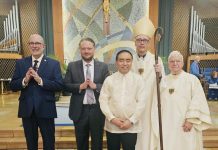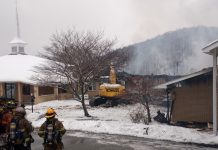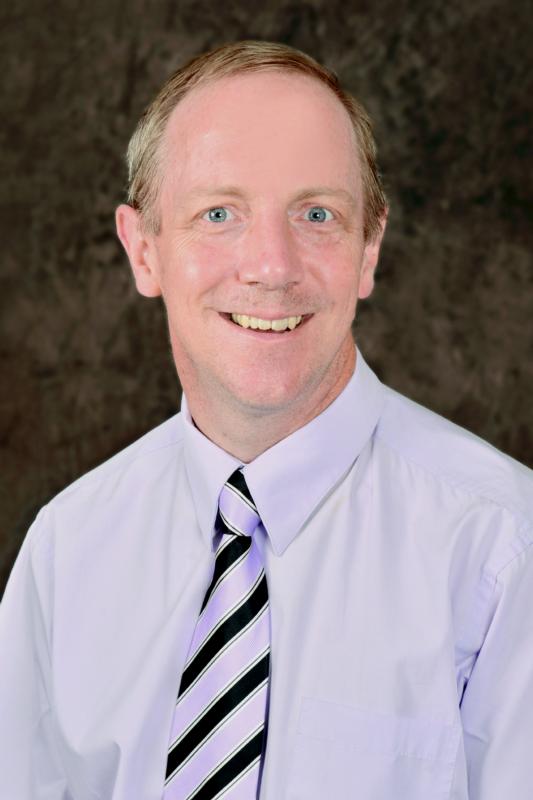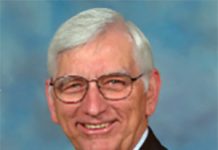Brother David Henley Catholic News Service
“Samuel, Samuel!” the Lord calls, in one of the more famous stories of discernment in the Bible. After bothering his teacher, Eli, three times, the wise man realizes it is the Lord who is calling. “If you are called,” said Eli, “reply, ‘Speak, Lord, for your servant is listening.'”
The story reveals a lot about listening for God. When Samuel finally listens, the Lord begins a lifetime of revelation for Samuel.
Don’t we each wish for the same? How do we discern what God is asking of us? In real estate, we hear that location, location, location is key. For discernment, it’s prayer, prayer, prayer. But that prayer needs to be informed by experience, both in doing new things and by listening to those around us.
Our friends and family can see things that we can’t see in ourselves! We listen to our experience, then we pray, listening for God’s calling.
Discernment isn’t exactly about broccoli versus ice cream. But discernment can be an everyday practice about how we handle relationships and small, daily choices.
Do I go to church this Sunday? Is it a good choice to fudge it on this test or on that business decision? Is this the day to go easy on my children? These decisions add up as we go. And God is in them, in some easy ways (Don’t cheat or steal!) and some harder ones.
There are bigger stakes in discernment, too, as we all know. What job or profession is best for me? Does my inner disposition suggest I get married — to this person, or another? Am I called to be a religious sister or brother, a priest? Am I open to having children? When? Will I be happy to settle in this part of the country, or another?
In these big questions of lifestyle, one choice is not better than another, generally speaking. But some choices are definitely better for me and for you, particularly. “Where am I called?” is the question. In a life well lived, it’s a question we keep asking.
In discernment, the first and most important thing we need to do is set aside time for prayer. “Speak, Lord, for your servant is listening,” as Samuel said. Find silence. We need to turn our questions over to God and tell God what our fears and desires are.
Will God’s voice be audible? I was hoping for that kind of thing as I discerned my own vocation to become a Glenmary brother — a burning bush, a voice from the sky, maybe even lightning to strike around me! But that didn’t happen. For me, it was in regular periods of silence that I was able to hear God calling.
God’s voice comes in other times in our lives, too. Maybe it could be in conversation with a friend, perhaps sharing insight into what I’m experiencing or what I’ve turned over to God for some type of answer. The insights of that person can be a tool for our own discernment.
Here’s an example similar to one from a man, Leo, whom I worked with for many years. As a young man he had deep questions about what path he should choose — he worked them out by writing letters home to his mother. In the end he came to his own decision, but his family’s sense of him was a key to discerning the priesthood.
On the other hand, a woman I knew, Catherine, went to Appalachia for volunteer work and found her inner spirit singing, and people around her responding joyously. She took her affirmation from those people around her rather than from her family, and went on to devote her life to nursing.
Dan, a young man I met once, told me that despite his self-doubts he found people repeatedly seeking his opinions and personal advice — maybe God was calling him to be a counselor, maybe even a priest or brother.
Or maybe you just have a knack for cooking, for fixing things or for organizing complicated tasks. All these experiences, good and bad, help you discern God’s calling in your life.
My advice? Stop, think, pray. Where is joy? Where do you feel peace? What feels like you?
Spending quiet time with Scripture is also important. True, we’re not going to stop throughout the day and see what Scripture says about each small action, but reflecting on Scripture and listening closely during the liturgy can help orient our lives.
Prayer and action go hand in hand for discerning God’s will. Consider how the quiet, though active, times in our day — doing dishes, gardening, exercise routines — can be times of listening for God.
I tell people who come to my Glenmary “Come and See” programs to listen closely. God doesn’t want you to suffer. Try things out, then pray about them. If the choice you see before you isn’t right for you, don’t do it!
But when you feel peace, when you hear that inner voice telling you that something is right, trust that you’re on the right path. That’s the fruit of discernment.
– – –
(Brother David Henley is vocations director for Glenmary Home Missioners, based in Cincinnati. Before becoming a vocations counselor, he served in missions in Georgia, Kentucky and Arkansas.)




































